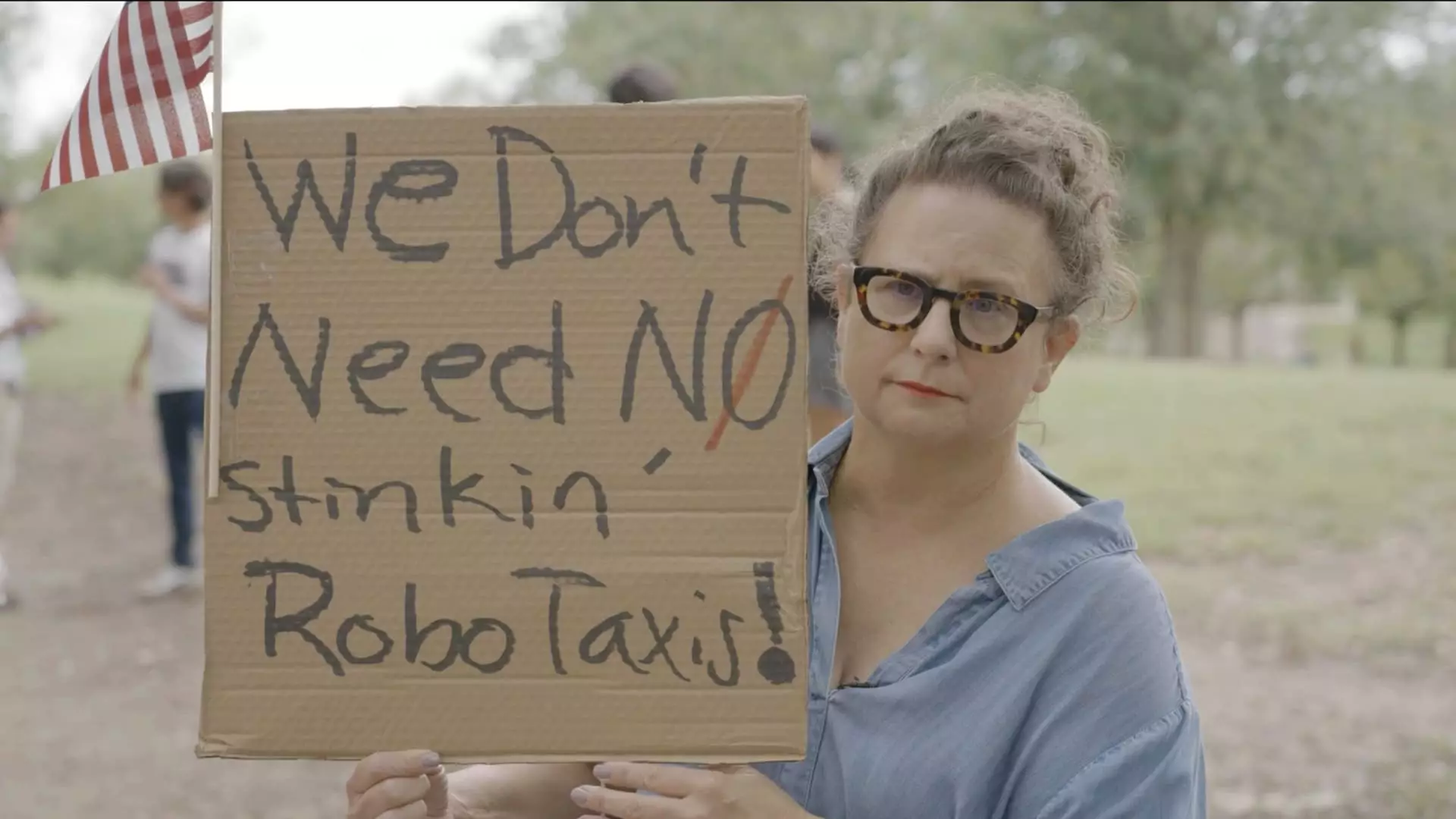As Tesla prepares to launch its pilot robotaxi service in Austin, Texas, scheduled for June 22, intense backlash is surfacing from various community groups. This growing dissent raises urgent questions about public safety, technological oversight, and corporate responsibility. Led by organizations like the Dawn Project and Resist Austin, demonstrators took to the streets to voice not just their concerns regarding Elon Musk’s developments but also the ethical implications of such advanced technology being deployed without adequate safety assurances.
The protestors have compelling points. There is a pervasive atmosphere of unease around Tesla’s partially automated driving systems, which have been scrutinized for their performance in real-world conditions. The National Highway Traffic Safety Administration has documented numerous incidents, including serious accidents and fatalities associated with these Autopilot and Full Self-Driving features. This data begs the question: Are we genuinely ready for a world where unmanned vehicles populate our roads?
The Dangers of Premature Technology Deployment
Tesla’s ambition to roll out a fleet of robotaxis signals a significant leap toward fully autonomous driving—but at what cost? During a recent demonstration, activists showcased a Tesla Model Y equipped with the latest FSD software, revealing a startling flaw: the vehicle failed to respond correctly to pedestrian safety measures, such as a school bus’s stop sign. This alarming incident is not merely an isolated technical glitch; it represents a potent symbol of a broader issue regarding the pace at which Tesla seeks to integrate complex technology into everyday life. The idea that a vehicle could jeopardize child safety casts a shadow over the credibility of the company’s safety protocols.
Elon Musk’s aspiration to position Tesla as a pioneer in automated transport is commendable, yet it can be perceived as irresponsible given the apparent lack of rigorous safety testing. Critics argue that the company has not provided sufficient transparency about how these robotaxis will operate in scenarios involving pedestrians or other vehicles. As Tesla pushes forward, the need for accountability becomes increasingly pressing.
The Intersection of Innovation and Ethics
While innovation is vital for societal progress, it should never come at the expense of human welfare. Individuals like Stephanie Gomez, who have participated in protests, emphasize a critical point: Musk’s past political affiliations and his perceived lack of governmental accountability only amplify feelings of mistrust. Many citizens rightly question whether current regulatory frameworks are sufficient to oversee the advancement of such potentially hazardous technologies.
Moreover, the relationship between technological advancement and ethical responsibility cannot be overlooked. Tesla’s approach to rolling out its technologies can often be interpreted as a corporate race, prioritizing market dominance over consumer safety. By placing groundbreaking engineering above thorough testing and accountability, a precarious precedent is established, where corporate ambition might overshadow community welfare.
The tensions in Austin reflect a broader national conversation about technological ethics, the future of transportation, and the responsibilities of innovators like Musk. With each step towards a future dominated by automated systems, the public deserves to know: Is the allure of progress overshadowing the essential right to safety?

